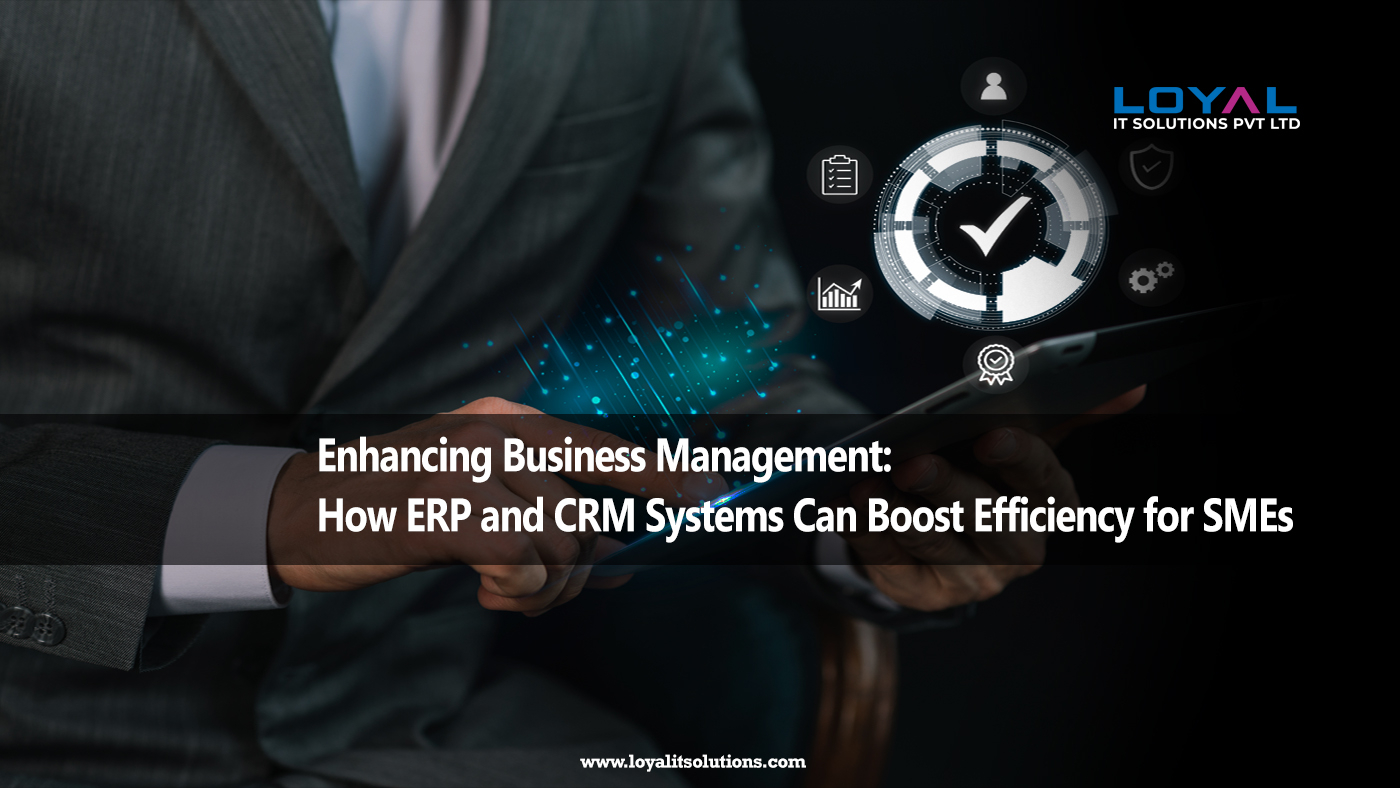Enhancing Business Management: How ERP and CRM Systems Can Boost Efficiency for SMEs

Mohammed Shariff
Sales & Marketing Manager
Small and medium-sized enterprises (SMEs) face numerous challenges in a fast-paced and ever-changing business environment. These challenges include effectively managing internal processes and maintaining close customer relationships. This is where Enterprise Resource Planning (ERP) and Customer Relationship Management (CRM) systems come into play as strategic tools for success and growth.
What is an ERP System?
Enterprise Resource Planning (ERP) is a software system that helps companies manage and integrate their core business processes, such as:
Finance and Accounting: Monitoring revenue and expenses.
Inventory Management: Tracking inventory levels.
Human Resources: Managing employee data and payroll.
Procurement: Overseeing purchasing activities.
An ERP system centralizes data and processes, providing a unified view of the business and enabling better decision-making.
What is a CRM System?
Customer Relationship Management (CRM) focuses on managing a company’s interactions with current and potential customers. Key features include:
Sales Management: Tracking sales activities and pipelines.
Customer Service: Managing support tickets and customer inquiries.
Marketing Automation: Running targeted campaigns and analyzing their effectiveness.
Customer Analytics: Gaining insights into customer behavior and preferences.
A CRM system helps businesses build and maintain strong customer relationships, leading to increased customer satisfaction and loyalty.
Benefits of ERP and CRM Systems for SMEs
1. Improved Efficiency and Productivity :
ERP and CRM systems automate routine tasks and streamline workflows, allowing employees to focus on more strategic activities. This leads to increased productivity and reduced operational costs.
2. Enhanced Data Accuracy and Accessibility :
By centralizing data, these systems ensure that all departments have access to accurate and up-to-date information. This reduces errors and improves collaboration across the organization.
3. Better Decision-Making :
With real-time data and analytics, SMEs can make informed decisions quickly. ERP systems provide insights into operational performance, while CRM systems offer a deep understanding of customer needs and behaviors.
4. Scalability and Flexibility :
Both ERP and CRM systems are scalable and can grow with the business. They offer flexibility to add new features and modules as the company’s needs evolve.
5. Increased Customer Satisfaction :
CRM systems enable personalized customer interactions and timely responses to inquiries and issues. This improves customer satisfaction and fosters long-term loyalty.
Implementing ERP and CRM Systems in SMEs
Assessing Business Needs :
Before implementation, it’s crucial to assess the specific needs and goals of the business. This includes identifying key pain points and determining the functionalities required from the ERP and CRM systems.
Choosing the Right Systems :
There are various ERP and CRM solutions available in the market, each with its own set of features and capabilities. SMEs should choose systems that best fit their business requirements and budget.
Ensuring Proper Training and Support :
Successful implementation requires adequate training for employees to ensure they are comfortable using the new systems. Additionally, ongoing support is essential to address any issues that may arise.
Measuring Success :
Post-implementation, it’s important to measure the success of the ERP and CRM systems. This can be done by tracking key performance indicators (KPIs) such as productivity improvements, cost savings, and customer satisfaction levels.
In the competitive landscape of today’s business world, SMEs need efficient tools to manage their operations and build strong customer relationships. ERP and CRM systems provide the necessary capabilities to enhance productivity, improve decision-making, and drive business growth. By implementing these systems, SMEs can overcome their challenges and pave the way for a successful future.
Planning to implement an ERP system in your business? Learn more insights on how to leverage the benefits. Our team is ready to assist you in choosing the best solution for your business.


Add a Comment